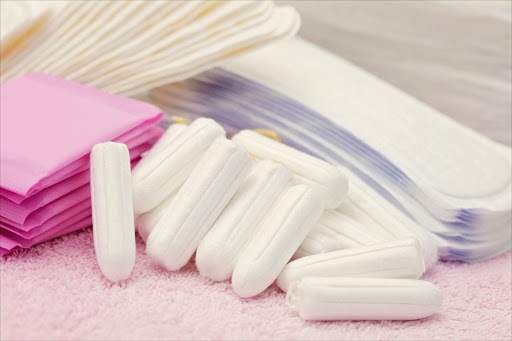The Public Relations Officer of the National Association of Registered Midwives Ghana, Rosetta Ntriwaah Boakye, has called on the government to take off what she refers to as ‘luxury tax’ on sanitary pads to make them affordable for women and young girls.
According to the midwife, who doubles as a maternal and child health advocate, the high tax imposed on the importation of sanitary pads make their use a preserve of the wealthy.
Ntriwaah Boakye described as unjust and unethical, the government’s appetite for making money from the importation of sanitary pads, hence making the prices go high.

“How do we raise our country when the basis of womanhood which is menstruation has become a burden to our women in these times due to poor menstrual hygiene related to high cost of sanitary pads,” she quizzed.
“Menstruation is a biological necessity; therefore, menstrual products are essential to female health and wellbeing. To consider sanitary pad a 'luxury goods' is not only unjust but also unethical. Somewhere in Africa (Ghana), menstrual products are classified as 'luxury' and are subject to 20% import tax whilst countries like Nigeria, Namibia, Malawi, Rwanda, South Africa etc have duty/tax exemption on sanitary pads.”
She bemoaned how the high cost of sanitary pads make it difficult for rural young girls to keep menstrual hygiene, a situation which pushes them into dangerous sexual activities with men.
“Promoting and encouraging menstrual hygiene among adolescent girls in deprived communities has become very challenging due to economic constraints. The consequences of this have made some adolescent girls vulnerable to menstrual complications whilst others have become victims of transactional sex and teenage pregnancy in their quest to raise money to afford sanitary pad.”
Ntriwaah Boakye emphasised that women grow with social stigma surrounding menstruation, which is enough burden, so the high cost of sanitary pads further worsens their plight.
She made reference to a UNICEF data which says 1.8 billion people menstruate globally every month and sanitary pad, which is the one commonest menstrual product used during this phase of natural reproductive occurrence should only be for menstrual hygiene and not menstrual luxury.
Latest Stories
-
Elections 2024: Your continued silence is more than deafening…
17 mins -
Let’s live peacefully and shame our saboteurs – Savannah executives of NPP, NDC
4 hours -
Reconstruction of Agona-Nkwanta-Tarkwa road 80 per cent complete
4 hours -
Internet penetration: 10.7 million Ghanaians offline – LONDA Report
4 hours -
USC cancels grad ceremony as campus protests against Israel’s war in Gaza continue
4 hours -
Harvey Weinstein’s 2020 rape conviction overturned in New York
5 hours -
US Supreme Court divided on whether Trump can be prosecuted
5 hours -
There’s enough justification for Affirmative Action Bill to be passed – Minka-Premo
5 hours -
Don’t allow people to manipulate you into vaccine hesitancy – Dr Adipa-Adappoe
5 hours -
Suspend implementation of Planting for Food and Jobs 2.0 for 2024 – Stakeholders
5 hours -
Parkinson’s disease no longer confined to the elderly – Public Health Physician, Dr Momodou Cham warns
5 hours -
Persons living with Parkinson’s disease appeal for support as they face stigmatization
5 hours -
36-year-old-trader sentenced for stealing employer’s money
5 hours -
9 signs you’re falling in love with someone who thoroughly enjoys emotional manipulation
5 hours -
Catholic Diocese of Keta Akatsi hosts Parkinson’s support group meeting
5 hours

